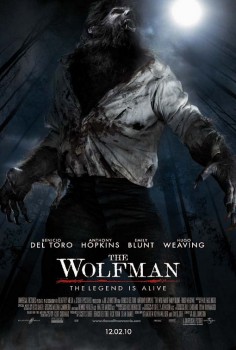 The Wolfman (2010)
The Wolfman (2010)
Directed by Joe Johnston. Written by Andrew Kevin Walker and David Self from the Screenplay by Curt Siodmak. Starring Benicio Del Toro, Anthony Hopkins, Emily Blunt, Hugo Weaving.
The re-make of the 1941 Universal horror classic The Wolf Man had a hellaciously crazy time getting to you this weekend. Original director Mark Romanek was removed from the film right before shooting commenced, giving replacement director Joe Johnston only two weeks of prep time. The studio rejected Danny Elfman’s classically-toned orchestral music and hired Pauls Haslinger from Tangerine Dream to re-score the picture . . . only to reject his music a month before the release date and put Elfman’s music back in. The movie, shot in the summer of 2008, was pushed back repeatedly, with new editors brought on in what seemed like a flurry of desperation to save a troubled, messy film.
All this caused considerable concern among old school horror fans like myself, for whom the George Waggner/Lon Chaney Jr. The Wolf Man is a primary text. (Read my thoughts on the original here.) Maybe the movie was in serious trouble; or perhaps Universal wanted to get it just right. We all wanted this film to work; we feared it would not.
I can now confidently report, as a Universal-and-Hammer Horror geek, that the compound word 2010 The Wolfman most definitely does work. It shows evidence of breaks and tears and furious hammering to cover construction difficulties. It has pacing trouble (for once, a movie that goes too fast), character and plot loose ends, and a female lead who doesn’t bring much to the film. It’s flawed, when you come down to silver tacks (not brass tacks; this is a werewolf film). But The Wolfman is also bloody furious fun of a kind that contemporary horror films just haven’t given to somebody with my tastes in a long time. Terence Fisher fans, James Whale fans, Jack Pierce fans, Lon Chaney Jr. Fans, werewolf fans, Victorian London fans, steampunk fans, go see this movie . . . warts and bare patches and all, this is your film.
…
Read More Read More
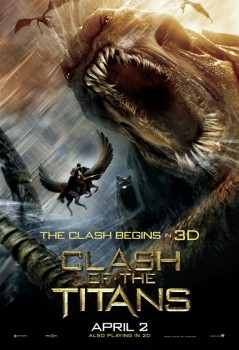 Clash of the Titans (2010)
Clash of the Titans (2010)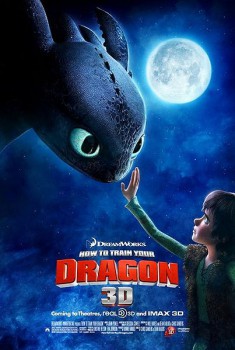 How to Train Your Dragon (2010)
How to Train Your Dragon (2010) Most pulp writers of the 1930s were itching to break into the hardcover book market. Since reprints of pulp stories in book form were rare at the time, these writers did not expect that their work for the newsstands would survive past an issue’s sell-date. They felt comfortable re-working and expanding on them to create novels. Raymond Chandler famously called his process of novelizing his already published work as “cannibalizing.” He welded together different short stories, often keeping large sections of text intact with only slight alterations. Other authors took ideas that they liked, or else felt they could do more justice to in the novel format, and enlarged them into books without text carry-over. Robert E. Howard used “The Scarlet Citadel” as a guide for The Hour of the Dragon. And Cornell Woolrich turned many of his short stories into novels. “Face Work” became The Black Angel. “Call Me Patrice” became I Married a Dead Man. “The Street of Jungle Death” became Black Alibi. And “Speak to Me of Death” became Woolrich’s most depressing novel (which is really saying something), Night Has a Thousand Eyes.
Most pulp writers of the 1930s were itching to break into the hardcover book market. Since reprints of pulp stories in book form were rare at the time, these writers did not expect that their work for the newsstands would survive past an issue’s sell-date. They felt comfortable re-working and expanding on them to create novels. Raymond Chandler famously called his process of novelizing his already published work as “cannibalizing.” He welded together different short stories, often keeping large sections of text intact with only slight alterations. Other authors took ideas that they liked, or else felt they could do more justice to in the novel format, and enlarged them into books without text carry-over. Robert E. Howard used “The Scarlet Citadel” as a guide for The Hour of the Dragon. And Cornell Woolrich turned many of his short stories into novels. “Face Work” became The Black Angel. “Call Me Patrice” became I Married a Dead Man. “The Street of Jungle Death” became Black Alibi. And “Speak to Me of Death” became Woolrich’s most depressing novel (which is really saying something), Night Has a Thousand Eyes.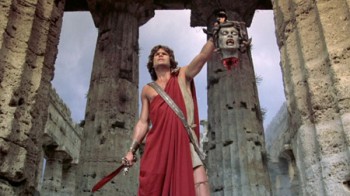 On April 2nd, “Titans Will Clash!” Which is perhaps the worst tag-line I’ve seen since “The Story That Won’t Go Away” for JFK. I wonder why the tag-line on director Louis Lettier’s previous film wasn’t “This Summer, The Hulk Is Incredible!”
On April 2nd, “Titans Will Clash!” Which is perhaps the worst tag-line I’ve seen since “The Story That Won’t Go Away” for JFK. I wonder why the tag-line on director Louis Lettier’s previous film wasn’t “This Summer, The Hulk Is Incredible!”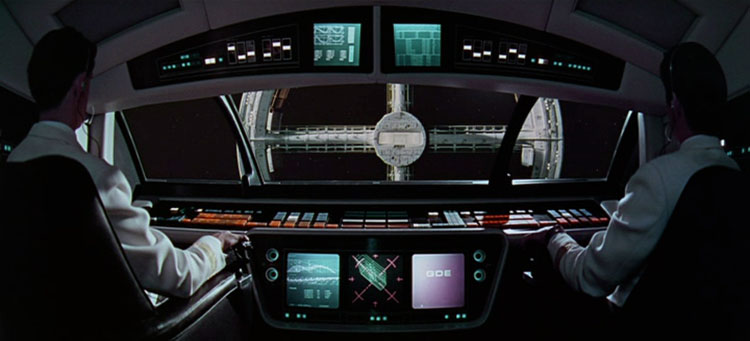
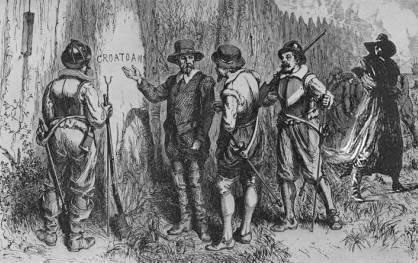 The movie Solomon Kane has gotten released in the U.K., and although it doesn’t have U.S. distribution yet, we will eventually see it on this side of the pond, either in theaters or on DVD. A Solomon Kane movie after so many years of patient waiting is a sword-and-sorcery/Robert E. Howard lover’s dream. But Al Harron at The Cimmerian, who has seen the movie in the U.K.,
The movie Solomon Kane has gotten released in the U.K., and although it doesn’t have U.S. distribution yet, we will eventually see it on this side of the pond, either in theaters or on DVD. A Solomon Kane movie after so many years of patient waiting is a sword-and-sorcery/Robert E. Howard lover’s dream. But Al Harron at The Cimmerian, who has seen the movie in the U.K., 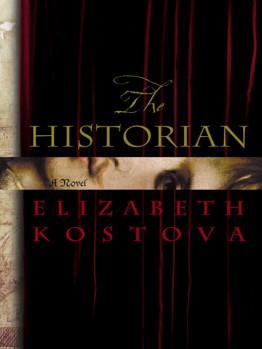 I don’t have a dislike for the vampire in general. I’ve repeatedly reminded myself about this even as I cringe at the saturation in our culture of mediocre work based on supernatural bloodsuckers. (Do I really have to name the book and movie series at the center of this creative blood drain? Of course I don’t.) Vampires are everywhere today, and this visibility has reduced their effectiveness for me, no matter what “new” spin the artists claim they’re putting on the legend. Exceptions are out there—for example the action-packed novels of certain contributor to Black Gate—but today I actively avoid horror and dark fantasy and especially parodies using vampires. I want more werewolves and phantasms and cosmic weirdness. Specifically werewolves. I love werewolves.
I don’t have a dislike for the vampire in general. I’ve repeatedly reminded myself about this even as I cringe at the saturation in our culture of mediocre work based on supernatural bloodsuckers. (Do I really have to name the book and movie series at the center of this creative blood drain? Of course I don’t.) Vampires are everywhere today, and this visibility has reduced their effectiveness for me, no matter what “new” spin the artists claim they’re putting on the legend. Exceptions are out there—for example the action-packed novels of certain contributor to Black Gate—but today I actively avoid horror and dark fantasy and especially parodies using vampires. I want more werewolves and phantasms and cosmic weirdness. Specifically werewolves. I love werewolves. The Wolfman (2010)
The Wolfman (2010)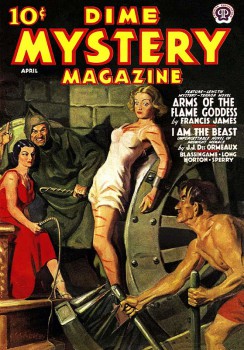 Continuing from
Continuing from 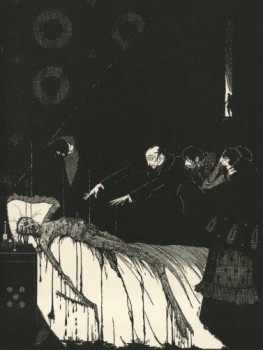 It might surprise regular readers of this website that Edgar Rice Burroughs and Robert E. Howard are not my favorite pulp writers. They rank among the authors who have influenced and inspired me the most—and they provide endless material to discuss and analyze. But my favorite pulper, perhaps my favorite writer of all time, is Cornell Woolrich.
It might surprise regular readers of this website that Edgar Rice Burroughs and Robert E. Howard are not my favorite pulp writers. They rank among the authors who have influenced and inspired me the most—and they provide endless material to discuss and analyze. But my favorite pulper, perhaps my favorite writer of all time, is Cornell Woolrich.